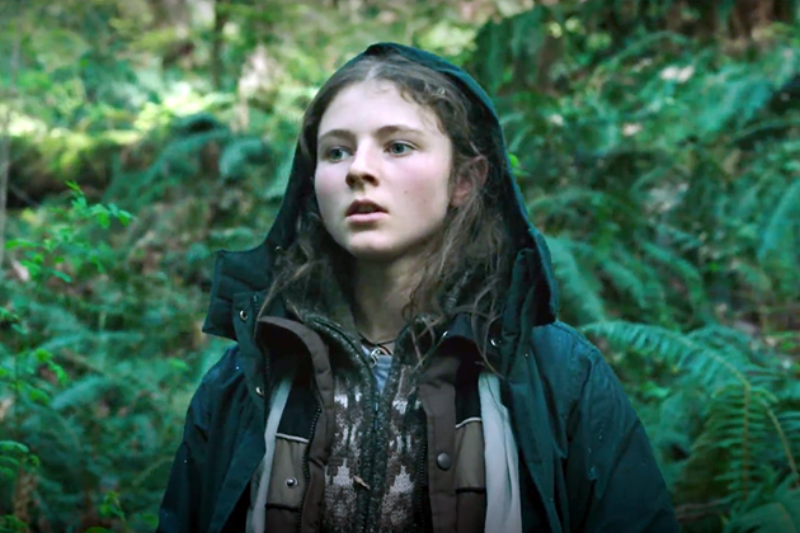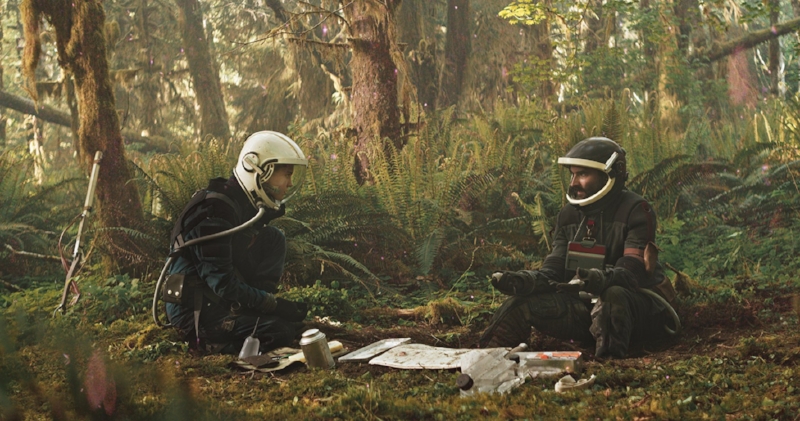SIFF Advance: LEAVE NO TRACE
Directing: B+
Acting: B+
Writing: B+
Cinematography: B+
Editing: B+
More often than not, movies about people living "off the grid" sensationalize the lifestyle, in one way or another. Leave No Trace, named after the code of ethics for existing in nature, has something a bit different to say about it. It says it in a way that is quiet, meditative, and touching.
Will (Ben Foster) is a vet so affected by PTSD he can't handle living a "normal" life. He's been living with his young teenage daughter, Tom (17-year-old New Zealand actor Thomasin McKenzie, here proving her chops instantly), in a large public park just outside Portland, Oregon. It's never revealed just how long they've been living there, but it's been long enough for them to run regular "drills" to hide away from any authorities who might come for them.
And that's exactly what happens, when Tom makes a mistake and gets spotted, bringing the police out later with dogs to track them down, after several scenes establishing their well-worn daily lives in the woods, a system of self-sufficiency in full swing. They have shelter, they share a tent, they sautée gathered mushrooms, they collect rain water. But, it's illegal to live on public land.
Did Tom ever experience a more mainstream life, I wonder? She asks what her mother's favorite color was, and that's all we hear about her. Did her mother die? Run off and leave Tom with her mentally unstable father, for some reason? Leave No Trace does leave some seemingly pressing questions unanswered.
Still, writer-director Debra Granik, who previously introduced us to Jennifer Lawrence in 2010's superb Winter's Bone, fully realizes this father and daughter's life together as it exists now. The authorities do some psychological evaluations, determine that Will is not a danger to Tom, and a local man offers them a place to stay on his relatively secluded tree farm.
Leave No Trace is really the story of a father and daughter growing in different directions. Will can't abide what he sees as unearned charity for too long, but with increased exposure to other people and other ways of living, she wants to inch a bit closer to civilization. Will won't accept a telephone. The longer he keeps Tom off the grid, in very subtle and minor increments, the more reckless he becomes as the man who is supposed to be protecting her. He has trouble seeing how unsustainable this way of living is for the two of them.
I'd call that ironic, except "sustainability" is never a concern of theirs. Will just wants to be on his own -- preferably with his daughter. It's pretty heartbreaking when she has to assert that "What's wrong with you isn't wrong with me." As it turns out, this is not the life she wants.
Movies like this often fly under the radar, precisely because there is nothing flashy about them. There's no exciting action whatsoever, no melodramatic conflicts. It's almost misleading to call it a drama. It's more of a character study -- but a very well executed one, full of lush shots of forests in Northwest Oregon and Southwest Washington. Leave No Trace is not likely to make a star of Thomasin McKenzie the way Winter's Bone did Jennifer Lawrence, but hopefully another movie will soon. McKenzie deserves it, her performance utterly believable and every bit a match to Ben Foster, who is also great.
It's difficult to characterize the tone of Leave No Trace. It feels like a contradiction in terms to call it a comforting sadness, but I can think of no other way to put it. It has a specific melancholy, a kind that is sort of inviting. It's pensive, in all the right ways.
Thomasin McKenzie is a breakout in Leave No Trace.
Overall: B+










